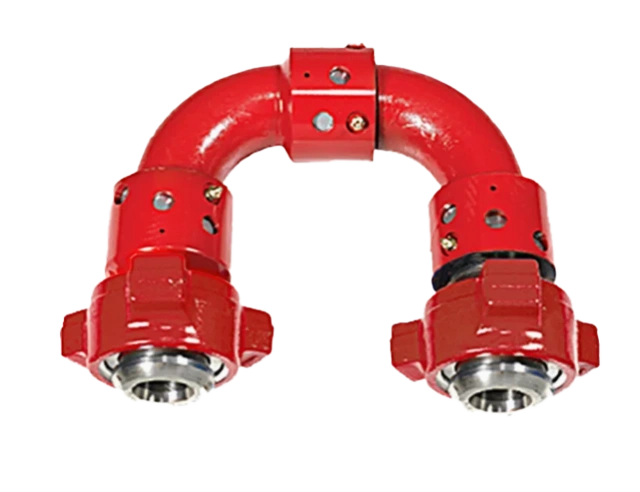Table of contents:
Swivel Joints Enhancing Flexibility in Complex Piping Networks
The Advantages of High-Pressure Pup Joints in Fluid Transfer
Customized Swivel Joints for Specialized Fluid Handling Requirements
Adjustable Joints Providing Adaptability in Dynamic Flow Systems
Swivel Joints Enhancing Flexibility in Complex Piping Networks
In the intricate world of fluid transport, the ability to accommodate movement and reduce stress on piping systems is paramount. Swivel joints manufacturers have risen to this challenge by developing innovative designs that allow for rotational movement while maintaining a secure seal. These joints are critical in applications where pipelines must navigate tight spaces or compensate for thermal expansion and contraction. Leading swivel joints suppliers offer products that can handle a wide range of pressures and temperatures, ensuring optimal performance in diverse industrial settings. By incorporating swivel joints into their systems, engineers can design more efficient and resilient piping layouts, reducing the risk of leaks and extending the operational lifespan of the entire network.
The Advantages of High-Pressure Pup Joints in Fluid Transfer
While swivel joints provide rotational flexibility, high-pressure pup joints offer another dimension of adaptability in fluid systems. These short pipe sections, often supplied by the same manufacturers as swivel joints, serve as connectors between different components of a piping system. Swivel joints suppliers recognize the complementary nature of pup joints and often include them in their product offerings. The versatility of pup joints allows for precise length adjustments, simplifying installation and maintenance procedures. In high-pressure environments, such as those found in oilfield operations, the robustness of these joints is crucial for maintaining system integrity and preventing costly downtime.
Customized Swivel Joints for Specialized Fluid Handling Requirements
The diverse needs of modern industries have pushed swivel joints manufacturers to develop customized solutions. These specialized joints are designed to meet specific operational parameters, including extreme temperatures, corrosive fluids, or ultra-high pressures. Swivel joints suppliers work closely with clients to understand their unique challenges and engineer products that address these requirements. For instance, in the chemical processing industry, swivel joints may be crafted from exotic alloys to resist corrosion, while in cryogenic applications, they might incorporate special seals to maintain effectiveness at extremely low temperatures. This level of customization ensures that each swivel joint performs optimally within its intended environment, enhancing overall system reliability.
Adjustable Joints Providing Adaptability in Dynamic Flow Systems
The ability to adjust and fine-tune fluid flow systems is a key advantage offered by modern joint technology. Swivel joints manufacturers have developed adjustable variants that allow for on-site modifications to accommodate changes in system requirements or environmental conditions. These adjustable joints provide engineers with the flexibility to optimize flow patterns, reduce turbulence, and minimize pressure drops within the system. Swivel joints suppliers often highlight the cost-saving potential of these adaptable components, as they can eliminate the need for extensive system redesigns or replacements. In dynamic industrial settings where process parameters may fluctuate, the inclusion of adjustable joints can significantly enhance operational efficiency and system longevity.
The integration of advanced joint technology in fluid flow systems represents a significant leap forward in industrial process optimization. Swivel joints manufacturers continue to push the boundaries of what's possible, developing products that offer unprecedented levels of flexibility, durability, and customization. As industries evolve and face new challenges, the role of swivel joints suppliers in providing innovative solutions becomes increasingly critical. By leveraging the expertise of these specialized manufacturers, companies can enhance the performance of their fluid handling systems, improve safety standards, and achieve greater operational efficiency. The future of fluid management lies in the hands of those who can adapt and innovate, and the cutting-edge joint technologies offered by leading suppliers are paving the way for more resilient and capable industrial processes.

No comments:
Post a Comment